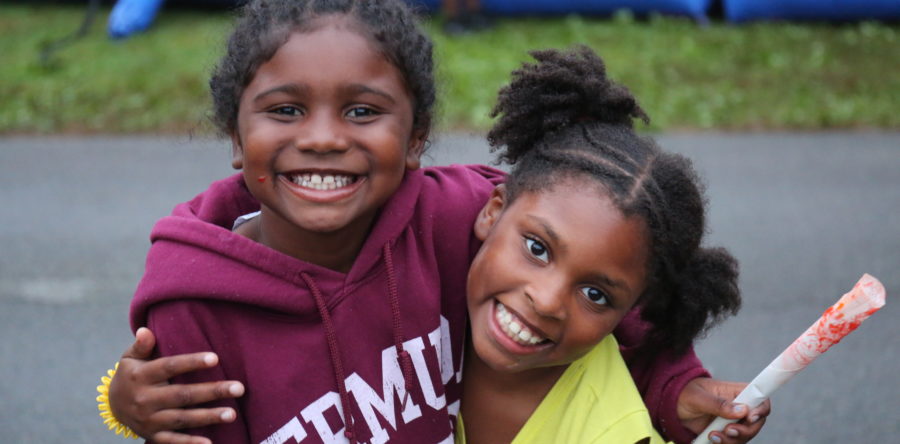Children between eight and ten years old currently spend nearly eight hours a day on media. Adolescents average nearly eleven hours per day, seven days a week, on screens. The negative impact of this digital lifestyle is evident in kids’ expanding waistlines as well as their growing lack of interest in being outdoors. Now there’s an additional worry about the impact of our kids’ excessive screen use: anxiety.
In a recent NY Times article — Why Are More American Teenagers Than Ever Suffering From Severe Anxiety? — Benoit Denizet-Lewis writes, “Anxious kids certainly existed before Instagram, but many of the parents I spoke to worried that their kids’ digital habits—round-the-clock responding to texts, posting to social media, obsessively following the filtered exploits of peers—were partly to blame for their children’s struggles. To my surprise, anxious teenagers tended to agree.”
Anxiety is on the rise—among children, teens, and adults—and our screen time is exacerbating the issue. The problem is not just with teens. Adults are modeling this uber-connected life and experiencing a similar rise in anxiety. Ubiquitous screens are all that this anxious generation has ever experienced, and as parents we can feel powerless to stop devices from overtaking our family’s lives.
Whether sending or receiving SnapChat messages, watching YouTube videos, scrolling on Instagram, playing video games, or taking 100 selfies to find the best angle, our children are inundated with digital input while also feeling pressure to post the “right” things. The attraction of media is hard to resist, so most of us (including parents) simply succumb to having the near constant presence of our electronics.
Many of us find it difficult to drag ourselves away from our laptops and smartphones, and often our schedules and lifestyles don’t allow for adequate time to just be outside and enjoy our natural surroundings. Richard Louv coined the term “Nature Deficit Disorder” in his book Last Child in the Woods to describe the alarming trend of children spending less and less time outdoors. Whether due to sensational media accounts of lost hikers that have fanned parental fears, or simply a lack of time in over-scheduled lives, children simply aren’t outside playing as much as they used to. Instead, they’re inside on their screens.
I don’t think anyone would debate that we all need to unplug more, but it’s very difficult to actually get kids off their screens, especially now that many schools require devices for course work, and most kids have their own smartphone by middle school.
Earlier this year, I interviewed a mom who gave clear instructions before her twelve-year-old daughter’s birthday slumber party: devices would NOT be allowed. But this mom, unfortunately, is still the exception, not the rule. She lamented that when her kids go to other people’s houses, they complain that all the kids do is play on their devices the entire time. While we can get our kids to turn off and put away screens at home, it’s difficult to monitor them when they’re not at home. And, unfortunately, kids are drawn to homes where screens are not as limited.
While a few weeks at camp is not the only answer to all the screen and anxiety problems, camp experiences can be a great salve for our kids. Breathing fresh air, connecting face-to-face, and not worrying about “likes” and what they’re missing, kids relax and enjoy themselves. And they report feeling happier and less anxious.
Here are four ways summer camp can help with the parenting challenge of too much screen time:
1. Detox
Just being completely unplugged for a few weeks is a new and refreshing experience for kids—a true digital detox. Because they’re having fun and staying engaged and entertained, they get over their screen addiction quickly. And, because it’s a “cold turkey” approach with no ambiguity (everyone’s following the same rules), campers don’t push back against being unplugged like they do at home.
2. Changed Perspective
By experiencing screen-free fun and friendships, many campers express a new desire to spend less time on their devices once they return home. Campers and staff have frequently reported examples of providing leadership in asking friends to participate in phone-free times.
3. Appreciation for Nature and Outdoor Recreation
While counting shooting stars, appreciating spectacular views from a hike, or smelling the smoke from their campfire, campers aren’t thinking about their TV, video games, and cell phones. Instead, they are experiencing nature and being truly present with others. Many discover new outdoor activities they enjoy, and they are inspired to spend more time outside and in the moment once they return home.
4. Better Face-to-Face Friendship Skills
Social interactions can be difficult, and many kids choose to keep interactions safely behind a screen. At camp, while sharing stories around the campfire and spending quality face-to-face time with new and old friends, campers gain more confidence in their social skills and are more likely to pursue real, face-to-face friendships upon returning home.
Getting kids off their screens — and convincing kids how good it feels to be unplugged — can be a real challenge. Summer camp can help.
October 8, 2018
Audrey Monke, MA
Photo courtesy of Gold Arrow Camp in Lakeshore, California.
Audrey “Sunshine” Monke, MA, with her husband Steve, has owned and directed Gold Arrow Camp (Lakeshore, California) for the past 30 years. She has been a member of ACA since 1989 and was president of the Western Association of Independent Camps (WAIC) from 2007–2010. Audrey researches, writes, and speaks about camp, parenting, friendship skills, and positive psychology. Her upcoming parenting book (Center Street, 2019) offers ideas for bringing the magic of summer camp home. Sign up for Audrey’s book updates at sunshine-parenting.com or contact her directly at audrey@sunshine-parenting.com.
Originally published at sunshine-parenting.com


